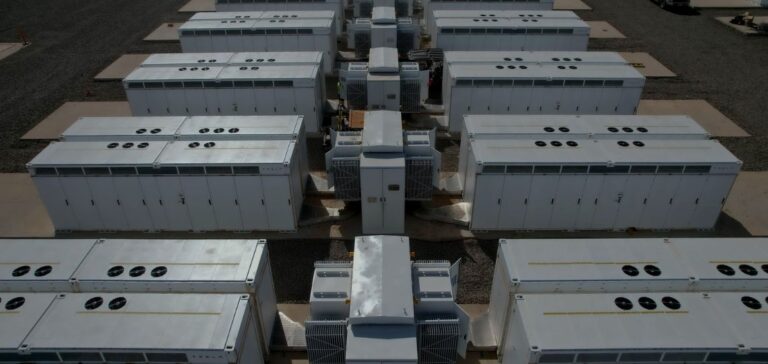This project represents a major step forward for the New England power grid, enhancing its stability and helping to reduce wholesale energy prices. Since 2023, battery storage projects have been growing steadily in the United States.
Strategic financing for the future of energy
The 150 MW/300 MWh Cranberry Point storage site was one of the first stand-alone battery projects to pass the ISO-NE market’s forward capacity auction in 2021. With this success, Cranberry Point has committed to supplying capacity to the ISO-NE market until 2031. Another Plus Power project, Cross Town Energy Storage in Gorham, Maine, has also won a capacity payment commitment until 2031.
The financing, orchestrated by First Citizens Bank and Nord LB as lead coordinators, as well as Investec and Siemens Financial Services, totals $133 million. It includes a term construction loan, a bridging loan and a letter of credit facility, underlining investors’ confidence in the unique capabilities of stand-alone storage facilities.
Impact on the regional energy market
The Cranberry Point and Cross Town projects are the largest battery energy storage projects under construction in New England, with commissioning scheduled for summer 2025. Construction of Cross Town began in April 2024, making it the largest site in the region. Cranberry Point, under construction since December 2023, represents around a third of the state’s goal to deploy 1,000MWh of battery energy storage by 2025.
The announcement also marks the first major financing of a project that will benefit from Clean Peak Energy Certificates (CPECs), an innovative program launched by Massachusetts in 2020 to incentivize the combination of emission-free generation with seasonal peak demand. This program rewards batteries for the extra service of moving clean loads to replace peak polluting generation.
Recognition and prospects for autonomous storage
According to Josh Goldstein, CFO of Plus Power, this funding is a testament to the ability of autonomous storage to support regional energy planning in a rapidly changing landscape. In addition, Mike Lorusso of First Citizens Bank points out that the installation of Cranberry Point will improve grid stability and reliability, while ensuring the efficient use of clean energy in the region.
Sondra Martinez, Managing Director at Nord/LB, adds that battery storage projects are essential to the energy transition, providing clean, reliable energy, especially in regions where carbon-emitting infrastructure is still prevalent, such as New England.
Rapid, strategic expansion
Plus Power, an industry leader in the development, ownership and operation of stand-alone energy storage systems, already operates three battery storage facilities in Hawaii and Texas. These installations include Rodeo Ranch Energy Storage, the largest stand-alone battery in operation in Texas with nearly 300MW / 600MWh. By summer 2024, Plus Power will have seven projects operational in Hawaii, Texas and Arizona, totaling 1,325MW and 3,500MWh.
With a growing portfolio of large-scale lithium-ion battery systems in over 25 states and Canada, Plus Power is currently running 10 gigawatts of storage capacity waiting to be connected to the transmission grid.
The announcement of funding for Cranberry Point marks a significant step forward for autonomous energy storage, paving the way for faster integration of renewable resources and a more robust energy transition in the United States.





















